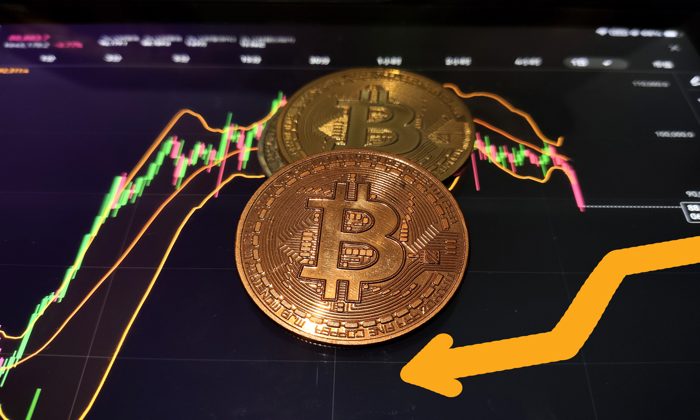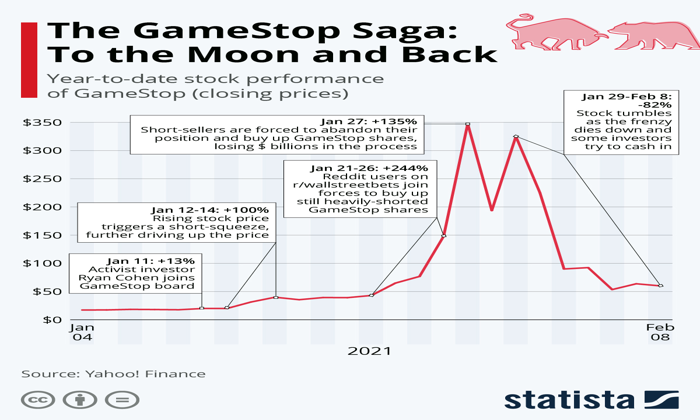In the new episode of “Black Mirror” titled “Common People,” viewers are plunged into a haunting exploration of desperation and digital notoriety, as a man resorts to performing extreme stunts for virtual cash, resembling the often controversial world of Pump.fun meme coins. This unsettling narrative reflects the real-life frenzy surrounding livestream stunts, where individuals push the limits for monetary gain, often crossing moral boundaries. With the rise of digital money, the themes of self-harm and reckless behavior resonate deeply, resembling various viral incidents tied to meme coin trading. The episode is not just fiction; it echoes genuine fears regarding the lengths people will go for fleeting fame and financial reward in our increasingly digital society. As the lines between entertainment and self-destruction blur, “Black Mirror” raises poignant questions about our obsession with online validation and the reckless pursuit of wealth.
The latest installment of the acclaimed series “Black Mirror” delves into the dark side of online culture with its provocative narrative centered on an individual who engages in hazardous livestreaming for financial gain. This storyline draws stark parallels to the current phenomenon of cashing in on meme coins through extreme online antics, which has captivated audiences. In essence, the episode serves as a cautionary tale about the perils associated with digital currencies and the psychological implications of self-harm broadcasts. By examining the grotesque lengths to which individuals might go in the pursuit of cryptocurrency, the series offers a chilling commentary on the unhealthy intersections of technology, finance, and personal well-being. Essentially, “Common People” highlights the troubling reality of our increasingly transactional relationships with digital platforms.
Exploring the Themes of the ‘Black Mirror’ Pump.fun Episode
In the latest episode of ‘Black Mirror’, titled ‘Common People’, viewers are exposed to a harrowing narrative that echoes the disturbing trends we’ve seen with livestream stunts on platforms like Pump.fun. The storyline focuses on a desperate man who, to support his wife’s medical costs, resorts to extreme measures on a livestream, which mirrors some real-life cases where individuals have engaged in self-harm for financial gain. This portrayal encapsulates the dark side of digital money and the perils of seeking validation and financial reward from anonymous online audiences.
The complexities of this episode highlight the slippery slope of digital monetization and the extent to which people will go in the age of social media. The protagonist’s transition from performing reasonable acts to self-harm illustrates the toxic relationship between desperation and the allure of quick cash through livestreaming. This narrative draws parallels not only to established shoutouts in the meme coin space but also underscores the risks involved when individuals intertwine their personal lives with the pursuit of digital income, prompting viewers to reflect on the consequences of seeking fame and fortune at any cost.
The Phenomenon of Livestream Stunts and Meme Coins
Livestream stunts have become a trending cash-grab tactic within the cryptocurrency landscape, particularly with the rise of platforms facilitating meme coin exchanges like Pump.fun. This platform gained notoriety for its willingness to engage with outrageous livestream antics, drawing creators who will go to extraordinary lengths for financial gain. The recent episode of ‘Black Mirror’ reinforces this trend, indicating a cultural shift where personal sacrifice becomes entertainment for the masses, often with dire consequences.
As seen in various incidents involving self-harm and outrageous performances, authors and creators alike have used the buzz of meme coins to engage their audience. The optimism surrounding meme coins has launched various campaigns, with new tokens cropping up in tandem with wild livestream events. However, the reality is sobering; many of these streams involve significant risks to one’s health and well-being. This blend of extreme measures and cryptocurrency illustrates an unsettling trend, prompting viewers and audiences alike to critically consider the implications of this new form of entertainment.
The Impact of ‘Pump.fun’ on Digital Money Trends
Pump.fun has undeniably reshaped the landscape of digital money by becoming a focal point for meme coin trading and associated live stunts. This platform’s ability to blend the thrill of cryptocurrency trading with outrageous livestream antics has created a unique niche that appeals to both crypto enthusiasts and thrill-seekers. The allure of potential windfalls from audience donations fuels a cycle where participants push boundaries further to garner viewer attention, ultimately contributing to a surge in trends that can often blur ethical lines.
Furthermore, the aftermath of such stunts often highlights the volatile nature of meme coins, as seen in the ‘Black Mirror’ episode which exposes the dark realities behind the pursuit of fame and fortune through digital avenues. This focus on the hurtful extremes individuals resort to for attention reflects a wider cultural commentary on how the intersection of entertainment and finance can lead to self-destructive behaviors, driving home the importance of establishing ethical guidelines around digital spaces to foster healthier engagements with audiences.
The Connection Between ‘Black Mirror’ and Current Livestream Culture
‘Black Mirror’ has always pushed the envelope on exploring the ramifications of technology on human behavior. In its new season, the show encapsulates current themes within livestream culture, particularly those emerging around platforms like Pump.fun. The narrative threads of the episode, highlighting the desperation that drives individuals to perform self-harming stunts, resonate not only with the content produced by influencers seeking virality but also with the grim realities of financial distress, starkly reflecting society’s often reckless pursuit of digital fame.
This connection between fiction and reality serves as a mirror—echoing the concerns surrounding the normalization of extreme actions in the quest for monetary gain. As livestream culture continues to grow, ‘Black Mirror’ offers a sobering reflection on the consequences of immersing oneself too deeply in this turbulent space. The show underscores the need for both creators and audiences to recognize the potential dangers inherent in intertwining financial desperation with public entertainment, advocating for a collective approach to responsible content creation.
The Role of Ethical Considerations in Livestreaming
As seen in the ‘Black Mirror’ episode, ethical considerations are paramount when discussing the implications of livestream stunts, especially those linked to financial incentives such as meme coins from platforms like Pump.fun. The desperate actions of the protagonist invite viewers to question not only the morality of such content but also its long-term impacts on both individuals and communities. As technology continues to evolve, creators and platforms need to address these ethical dilemmas to promote healthier forms of engagement with their audiences.
The push for increased moderation and ethical guidelines around livestreaming is essential to protect vulnerable individuals from being exploited or driven to extremes. As exemplified by previous incidents tied to meme coins, where individuals faced physical harm, establishing firm principles within digital spaces can help mitigate risks associated with performing for profit and encourage responsible behavior among creators. This evolution necessitates a collaboration between platforms and users to redefine the boundaries of acceptable content and promote safer practices.
The Dark Side of Viral Fame: Lessons from ‘Common People’
The storyline in ‘Black Mirror’s’ ‘Common People’ serves as a cautionary tale about the dark side of chasing viral fame through extreme measures. The episode sheds light on the consequences of people’s willingness to risk their safety for recognition and monetary rewards, as seen in the realm of Pump.fun and its associated meme coins. As creators attempt to replicate past successes, the potential for self-harm and exploitation becomes disturbingly prevalent, ultimately showcasing the urgent need for a dialogue about the pitfalls of fame in the digital age.
The growing fascination with sensationalism in online content creation raises critical questions about audience responsibility and creators’ ethical implications. As we analyze the effects witnessed on platforms like Pump.fun, it becomes clear that the cycle of expectation surrounding extreme stunts is invariably linked to viewer engagement. Thus, understanding the psychological impacts and societal pressures driving individuals to perform such acts is paramount in fostering a supportive and protective online environment.
The Evolution of Livestreaming Platforms Post-Pump.fun
In the wake of the Pump.fun phenomenon, many livestreaming platforms have begun reassessing their content moderation policies to avoid scenarios that could lead to harm or exploitation. The willingness of platforms to cancel undesirable features, such as those that enable harmful stunts, reflects a growing awareness of the risks involved with unregulated digital spaces. Following the incidents that prompted backlash, it’s become evident that ensuring user safety and providing a framework for responsible content creation is more crucial than ever.
This evolution paves the way for a new standard in how digital money and livestreaming intersect, creating a safety net for users while fostering opportunities for creators to engage their audiences without resorting to harmful extremes. Through refreshed guidelines and an emphasis on ethical standards, platforms can effectively balance the allure of financial incentives with the necessity of preserving mental and physical well-being, ultimately creating a healthier ecosystem within the livestreaming landscape.
The Future of Meme Coins and Livestream Culture
The future of meme coins and their relationship with livestreaming culture will undoubtedly continue to evolve, influenced heavily by cultural reflections such as those depicted in ‘Black Mirror.’ As users navigate the complexities of generating digital income through these platforms, it’s essential to remain aware of the ramifications brought forth by public stunts and their motivations. As the narrative of desperate performers unfolds, it signals the need for shifts in how audiences engage with entertainment that combines elements of risk and reward.
Moreover, the increased scrutiny surrounding the ethical practices of platforms like Pump.fun suggests a turning tide towards more responsible content creation. With the potential to redefine the landscape of meme coins, creators may focus on fostering community-driven experiences that prioritize user safety while still embracing the playful nature of meme culture. This ensures that while the quest for financial gain remains enticing, it does not overshadow the importance of maintaining a conscientious approach to audience interaction and wellbeing.
Frequently Asked Questions
What is the Black Mirror Pump.fun episode about?
The Black Mirror episode titled ‘Common People’ features a desperate man livestreaming extreme stunts for digital money. The narrative focuses on the dark side of self-harm as the protagonist seeks funds for his wife’s medical bills, paralleling the disturbing trends seen in the Pump.fun meme coin market.
How does the Black Mirror Pump.fun episode relate to real-life livestream stunts?
The Black Mirror Pump.fun episode reflects real-life incidents where individuals have performed dangerous stunts for digital money, similar to events surrounding the Pump.fun meme coin trading. These stunts highlight the desperate lengths people may go to in pursuit of viral fame and financial support.
Does the Black Mirror episode reference Pump.fun meme coins?
While the Black Mirror episode does not explicitly mention Pump.fun, its themes resonate with the viral meme coin culture promoted by the platform. The extreme actions taken by the character echo the shocking livestream stunts that have become notorious within the Pump.fun community.
What impact did the release of the Black Mirror episode have on Pump.fun users?
The release of the Black Mirror episode inspired some Pump.fun users to create Black Mirror-themed meme tokens. This trend illustrates how the episode’s commentary on digital money and livestreaming impacts the broader cultural conversation around meme coins and their associated risks.
What is the significance of the livestream platform depicted in the Black Mirror Pump.fun episode?
In the Black Mirror episode, the fictional livestream platform ‘Dum Dummies’ serves to critique the commodification of personal suffering for profit, mirroring the real-world dynamics of platforms like Pump.fun, where the line between entertainment and self-harm can blur.
What are the concerns related to self-harm livestreams in the context of Pump.fun?
Concerns over self-harm livestreams are highlighted in both the Black Mirror episode and real-life incidents involving Pump.fun. With a focus on shocking content to attract viewership and donations, there are significant risks regarding user safety and mental health.
Why is the Black Mirror Pump.fun episode seen as culturally relevant?
The Black Mirror Pump.fun episode is culturally relevant because it addresses contemporary issues related to digital money, the dangers of livestreaming, and the impact of meme culture, paralleling the phenomena that have emerged around platforms like Pump.fun.
What lessons can viewers take from the Black Mirror episode regarding digital money?
Viewers can learn about the potential dangers of seeking financial gain through extreme measures and the moral implications of digital currency. The Black Mirror Pump.fun episode serves as a cautionary tale about valuing life and safety over superficial financial rewards.
| Key Points | |
|---|---|
| Episode Title: Common People | A man livestreams extreme stunts for digital money. |
| Character Focus | A desperate husband performing self-harm to fund his wife’s medical bills. |
| Connection to Real Events | Parallels with outrageous stunts in the meme coin space, especially related to Pump.fun. |
| Livestreaming Themes | Critique of online culture, exploring the lengths individuals go for financial gain. |
| Character Actor | Chris O’Dowd plays the role of the husband. |
Summary
The new Black Mirror Pump.fun episode titled “Common People” explores the dark side of online fame and the extreme lengths one may go to in pursuit of financial relief. Featuring a desperate protagonist who livestreams increasingly painful stunts, the episode acts as a stark commentary on the voyeuristic nature of digital platforms and the real-world consequences of seeking monetary gain through self-harm. This engaging narrative invites viewers to reflect on their own interactions with technology and the often concerning motivations behind viral content.
The recent episode of Black Mirror, titled “Common People,” boldly explores the extremes individuals may go to in the pursuit of digital money, mirroring the outrageous trends popularized by Pump.fun. In a chilling narrative, a desperate man turns to self-harm during a livestream, seeking donations from viewers who revel in the spectacle of his suffering. This dark twist evokes real-life incidents surrounding self-harm livestreams and the startling proliferation of meme coins in the crypto space. As the characters navigate the murky waters of online fame and financial desperation, they unintentionally reflect the growing obsession with livestream stunts and instant gratification in the realm of digital currency. In a cautionary tale that resonates with the current climate of impulsive meme coin trading, Black Mirror raises critical questions about morality in our increasingly digital world.
In the latest installment of the acclaimed anthology series, “Black Mirror,” we are confronted with a powerful tale of desperation and the lengths one might go to for financial relief through digital means. This episode, reminiscent of disturbing real-life livestreams connected to meme coin transactions, illustrates a man’s descent into performing shocking stunts for monetary gain as viewers contribute in hopes of reveling in the spectacle. With the backdrop of a fictional livestreaming platform, the show cleverly critiques the societal obsession with fame and wealth that often accompanies the emergence of new digital currencies. Through this lens, it taps into broader themes of self-destruction, exploitation, and the ambiguous morality within the burgeoning world of cryptocurrency and social media, particularly highlighting phenomena similar to those seen with platforms like Pump.fun.















